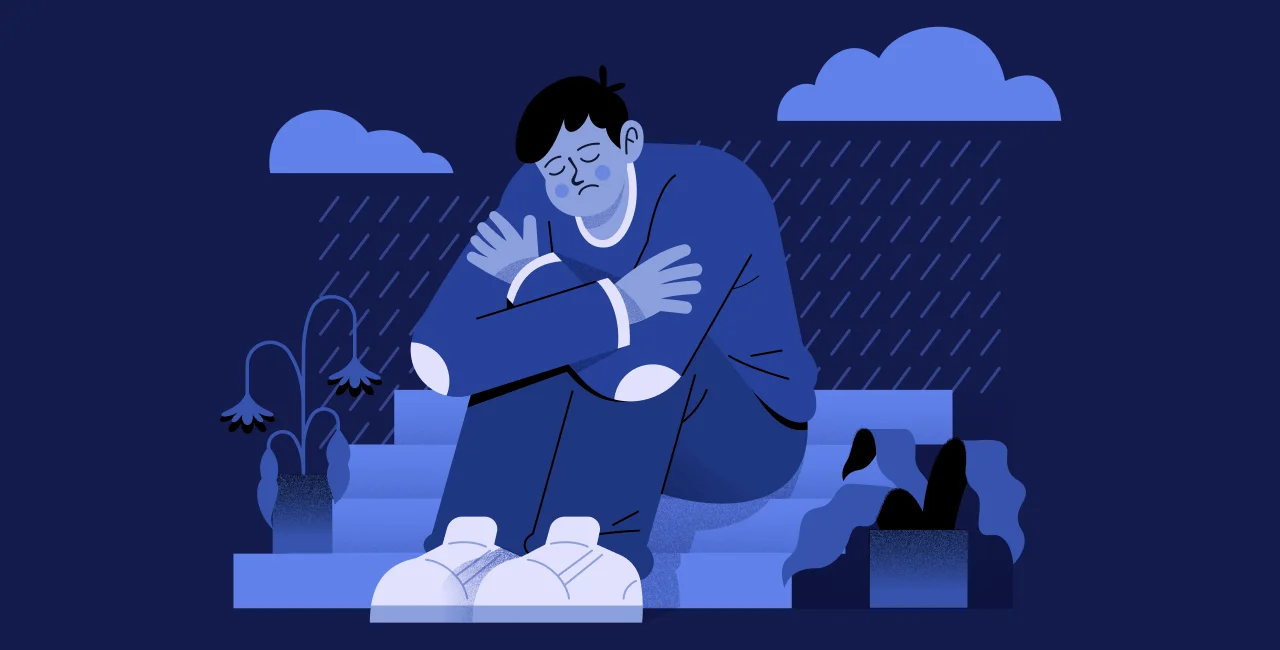Mental health is an issue that affects us all—something that we should especially take care of amid the currently colder, darker winter days in Czechia. This week saw International Men’s Day—taking place during a month when parts of the world observe Movember, an event that recognizes men’s health struggles, including psychological difficulties.
Prague Integration, a company that provides foreigners with support, services, and events in the field of mental health, held a special panel discussion this week in Prague exploring expat men’s mental health in Czechia. The unsettling statistics that one in 10 men living in Czechia have symptoms of a depressive illness and that 6 percent of all men suffer from an anxiety disorder or depression in the country underscore the importance of accessing help.
Being a foreigner in a country—whether you’ve just moved or have been a resident for a while—can make finding mental health services oftentimes tricky, and sometimes simply daunting and frustrating.
If you’re a man, this can be even more difficult. CEO and founder of Prague Integration Amanda Mataija told Expats.cz: “The biggest challenge expat men in the Czech Republic face is the overall stigma of asking for mental health support. Due to the patriarchal environment here, where men are instructed by their upbringing to always act strong and not show vulnerability, they are less likely to admit their problems.”
According to Mataija, men going through psychological struggles are in an even more precarious position because “men are almost twice as likely as women to develop substance abuse.” Add to the fact that, in the Czech Republic, eight in 10 suicides are carried out by men and the picture looks a whole lot bleaker.
Work can also have a serious effect on mental health—and vice versa—for men in Czechia. “Employment-related issues are one of the leading causes of male mental health struggles,” Mataija said, mentioning that men’s work-related stress can impact men more seriously than women in the context of psychological problems.
Prague Integration founder and CEO Amanda Mataija"We see a lot of programs for women that focus on encouragement, empowerment, and other various support schemes. However, for men, only few exist in Czechia and Europe."
The best methods to seek help
Extant structural issues in the availability and accessibility of mental health services do little to help men in Czechia, Mataija says. This may contribute to the fact that men are more than one-third more likely to opt against seeking mental health support as compared to women. Long waiting times (over one year) for a state-funded psychiatrist that accepts VZP health insurance, paired with limited English-speaking practitioners, can also deter men.
What’s the best course of action to take if you are a man suffering psychological issues? “The most important thing is to admit to yourself that you are struggling—and that it is OK not to be OK,” Mataija says with a blend of confidence and reassurance. Seeking professional help is then the next course of action.
“I see a lot of males around me using extensive exercising or ‘life coaches’ as a way of coping with their problems. While these can also be helpful, they are a short-term fix,” Mataija thinks.
Psychologist Magdalena Njegic, also a panelist, told the audience that—in the context of the workplace—“workshops connecting colleagues together” can have a definite positive impact on male mental health at work.
Founder of workplace-solutions firm The Company Therapist Mike Köppe“Men often don’t realize they have a problem. That begs the question: how can you possibly ‘fix’ a problem that you don’t know exists?”
She adds, crucially, that men tend to react better to male-tailored mental health support that is created specially for male-prevalent problems. Njegic also adds the importance of creating a clear disconnect between work and life.
History & Geography Teacher/Reviewer

Telemarketing Specialist with English - US Market

The road ahead
Expats.cz asked Mataija for one piece of advice she’d give to expat men in Czechia going through difficult times mentally. “Finding a therapist or counselor—especially one who understands the expat experience—is a game-changer,” she comments.
The Prague Integration Center, a separate entity, also helps expats (male and female) find their feet in the country and offers advice on integration.
On a societal level in Czechia, acceptance and understanding of male mental health issues is improving—though a clear stigma remains. “As a society we are talking about it more and sharing awareness. These are still small steps [to be made], but I am happy to see there are more clinics and private practices opening for mental health here," Mataija tells us.
Panelist and psychologist Daniel Espitia also said that, although there is still a stigma, it is “becoming more normalized in everyday speech.”
How can things get even more tolerant and accepted? “I do think that as a society here we need to work on more comprehensive, male-oriented programs—there are basically none of them in Czechia,” Mataija believes.
In the workplace, Mataija also recommends having more mental-health services on a corporate and company level, as large firms tend to have the appropriate and dedicated resources (and budgets) for mental health.
“Acknowledging your feelings is a sign of strength, not weakness,” Mataija reminds Expats.cz. As more people talk about men’s mental health in November and beyond, the social stigma can—eventually—be broken down.












 Reading time: 4 minutes
Reading time: 4 minutes 





 German
German
 Dutch
Dutch
 French
French




















